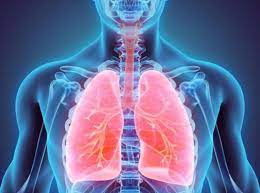A chest cold and a common cold are not the same thing; they have different effects on the lungs. A variety of illnesses can cause a menthol or cold sensation in the chest. Among them include heartburn, infections, nervousness, and even cardiac problems. In this blog post, we’ll discuss the symptoms to watch out for, delve into the reasons behind Cold Icy Feeling inside Chest, and look at some of the available remedies.
Menthol feeling in chest when breathing?
It might be frightening and confusing to feel like something is chilly and frozen in your chest. This peculiar and unexpected feeling is sometimes compared to a cooling or menthol sensation, and its severity can vary from slight discomfort to excruciating pain. This symptom should be treated carefully, and if required, medical help should be sought, since it may point to underlying issues.

How long does a chest cold last?
Most commonly, a cold or similar respiratory illness causes a chest cold. Although they often get better after 7–10 days, symptoms might occasionally linger for weeks.
What are the reasons for Cooling Sensation In the Throat And Chest?
following are some causes f why your chest feels very cold:
Cold Environment or Exposure
A feeling of chilling in the chest and neck can be brought on by exposure to cold weather or by abrupt temperature fluctuations. Feelings of coldness may be brought on by the body’s reaction to cold weather in various regions.
Conditions Related to Nerves
This may result in discomfort, tingling, or numbness, frequently referred to as a “pins and needles” feeling. Common instances are carpal tunnel syndrome, pressure on the median nerve in the wrist, and sciatica, which is irritation of the sciatic nerve. Numerous things, such as trauma, strain on the nerve, or certain illnesses like diabetes, can irritate nerves.
Problems with Circulation
Numbness, tingling, or a chilly feeling in the extremities—especially the hands and feet—are common signs of circulatory issues. Numerous illnesses, including diabetes, obesity, and peripheral artery disease (PAD), can cause poor circulation. Reduced blood flow may result, which might hurt and cause muscle cramps. In extreme circumstances, this may cause tissue damage and the need for emergency medical care.
Indigestion or Acid Reflux
Upper abdominal discomfort or pain, frequently coupled with bloating, burping, nausea, and occasionally a burning feeling (heartburn), are the hallmarks of indigestion. Indigestion is frequently caused by acid reflux, which is the flow of stomach acid back into the esophagus, causing discomfort and inflammation. Gastroesophageal reflux disease (GERD), characterized by chronic acid reflux, can result in more serious symptoms such as trouble swallowing, a persistent sore throat, or a persistent cough.
Infected respiratory systems
Symptoms of respiratory infections might include exhaustion, chest congestion, coughing, and shortness of breath. These illnesses, which include pneumonia and bronchitis, can be brought on by bacteria, fungi, or viruses. These infections frequently cause fever and chills, which are signs of the body trying to fight off the illness. You must visit a doctor if you get chest discomfort, a high temperature, or breathing issues.
Panic Attacks and Anxiety
Fear and discomfort that come on suddenly and intensely are called panic attacks. They may result in chest discomfort, sweating, shaking, shortness of breath, palpitations, and a sensation of impending doom. Anxiety is a persistent illness that frequently results in ongoing tension, concern, and uneasiness. These disorders may necessitate psychological and occasionally medical intervention and can have a substantial influence on day-to-day functioning.
Angina
Chest pain brought on by a decrease in blood supply to the heart muscles is known as angina. The sensation of fullness, pressure, or squeezing in the chest is a common indicator of coronary artery disease. In addition, the shoulders, arms, neck, jaw, or back may experience angina. It usually happens after physical activity or stress, and rest or medicine usually makes it go away.
Heart Attack
A heart attack happens when the blood supply to a portion of the heart is restricted. Similar to angina, it can induce excruciating chest pain, but it’s frequently worse and lasts longer. The following symptoms might be present: nausea, lightheadedness, cold sweats, or dyspnea. Treating a heart attack quickly is essential to minimizing cardiac damage, as it is a medical emergency.

Additional Symptoms Of Cold Icy Feeling Inside your Chest
People who feel like they have a cold or ice feeling in their chest, especially if they have other worrying symptoms, should get help right away. A healthcare professional’s advice is essential for a comprehensive assessment and suitable therapy that takes into account the particular underlying reason.
These are a few more signs and symptoms of a chilly chest within.
Chest Pain
There are a variety of reasons why someone may have chest pain, from minor ailments like acid reflux and strains to more serious ones like heart attacks and pulmonary emboli. Differentiating between the causes can be aided by the type of pain (such as acute, dull, searing, or squeezing) and concomitant symptoms. If you have significant chest discomfort and shortness of breath or think it could be connected to your heart, you should get medical help immediately.
Burning Sensation
In addition to the chilly feeling, a burning sensation in the area of the chest may indicate heartburn or acid reflux-related problems. This pain might get worse when you’re lying down or after eating. It’s critical to distinguish between symptoms of a benign burning sensation and those of more significant heart issues in order to receive the proper medical treatment.
Breathlessness
The presence of cold and ice feelings, together with dyspnea, may suggest a possible respiratory or cardiovascular condition. Chest tightness or coldness can result from conditions such as asthma or heart problems. These conditions can affect breathing.
Radiating Pain
When a chilly feeling accompanies radiating pain, it may be an indication of conditions including heart difficulties, musculoskeletal ailments, or nerve compression. Back, jaw, or arm discomfort that radiates might be a sign of an impending heart attack. Considering the severity of these symptoms, it is essential to seek medical assistance right away to ensure a proper diagnosis & prompt treatment.
Numbness or Tingling
Paresthesia is the term used to describe these feelings, which can happen in different body regions. Nerve compression (such as carpal tunnel syndrome), inadequate blood supply, or neurological conditions like multiple sclerosis are common causes. Simple activities like sitting still for an extended period of time might cause temporary numbness, but chronic or repeated numbness or tingling frequently calls for medical attention.
Other Associated Symptoms
In addition to a sense of coldness and icyness inside the chest, there may be a variety of other symptoms, such as exhaustion, lightheadedness, nausea, or profuse perspiration. The symptoms above offer significant diagnostic insights, aiding medical practitioners in determining the root problem. A detailed assessment that takes into account the entire symptom profile is essential for precise diagnosis and customized treatment regimens.
Diagnosis
When a patient presents with a chest feeling chilly or menthol-like, a thorough assessment is usually necessary to rule out other possible explanations. This unusual sensation could be caused by some conditions, such as respiratory disorders like bronchitis or asthma, where inflammation of the airways can cause similar sensations, or even anxiety or panic disorders, which can manifest with various physical symptoms, including unusual chest sensations.
Gastroesophageal reflux disease (GERD) is one condition where stomach acid reaching the esophagus can cause a cooling or burning sensation. A thorough medical history and a physical examination emphasizing the respiratory and cardiovascular systems would probably be the first diagnostic procedure step.
The doctor may inquire about the causes, length, frequency of the sensation, and accompanying symptoms (e.g., heartburn, coughing, or difficulty breathing). Further testing, such as an electrocardiogram (ECG) to measure heart function, pulmonary function tests to evaluate the lungs, and an endoscopy if GERD is suspected, may be carried out based on these preliminary results.
To rule out other underlying problems, blood testing may also be required. For a precise diagnosis, it’s crucial to speak with a healthcare provider because the reasons behind these feelings might differ greatly and may call for certain therapies.
Treatment Of Cold Icy Feeling inside Chest
The underlying reason must be considered while treating or managing a cold, icy feeling in the chest. Here are a few typical methods:
Indigestion or Acid Reflux
A few little mealtime adjustments, avoiding lying down immediately after meals, and avoiding trigger foods are just a few examples of lifestyle modifications that can greatly reduce symptoms. Over-the-counter antacids and acid reducers may also be helpful. In more severe situations, surgery or the use of prescription medications may be necessary.
Infections of the Respiratory system
Above all, over-the-counter cough suppressants and decongestants, as well as rest and enough hydration, may help control symptoms. Antibiotics may be recommended in some situations to treat bacterial chest infections.
Anxiety and Attacks of Panic
Therapy, mindfulness exercises, and deep breathing exercises are among anxiety treatment strategies that might help lessen symptoms. Sometimes, anti-anxiety medications are used for a brief respite.
Also Read : Hunger Pains in Chest (Causes and Solutions)
Heart Disease or Angina
Treatment may include using medications that improve blood flow and lessen the strain on the heart, such as beta-blockers, calcium channel blockers, and nitroglycerin. Lifestyle modifications, such as giving up smoking, maintaining a heart-healthy diet, getting regular exercise, and controlling stress, can make a big difference. Intrusive procedures such as coronary artery bypass grafting (CABG) or angioplasty may be necessary under certain conditions.
Pain in the Nerves or Intercostal Neuralgia
Pain management strategies, such as local anesthetics, nerve blocks, and nonsteroidal anti-inflammatory medications (NSAIDs), may be used as treatment choices. Alternative treatments such as acupuncture or physical therapy might also be considered.
Prevention for Cold icy Feeling in Chest
Keep Up a Healthy Lifestyle
Keeping up a healthy lifestyle is essential to avoiding a chilly, ice feeling in the chest. Maintaining a healthy lifestyle promotes respiratory health, overall wellbeing, and cardiovascular health while reducing the likelihood of diseases that might exacerbate chest discomfort.
Handle stress and anxiety
Prolonged stress and anxiety can lead to sensations similar to a cold feeling in the chest. To prevent these symptoms, stress must be managed using techniques like yoga, deep breathing, or meditation. Incorporating stress-reduction strategies into daily activities improves mental and emotional well-being and reduces the likelihood of worry-related chest discomfort.
Stay Away from Triggers
Identifying and avoiding triggers that are specific to a person’s health is the key to preventing a cold, icy feeling in the chest. For instance, if some foods make your acid reflux or heartburn worse, it’s advisable to restrict your consumption of certain meals. Choosing one’s lifestyle carefully and being conscious of one’s triggers may help lessen the chance of experiencing discomfort.
Keep Your Posture Correct
Maintaining good posture is essential to preventing chest discomfort. Poor posture can exacerbate musculoskeletal issues and compress nerves, perhaps causing symptoms such as chest tightness or coldness. Ergonomic workplace adjustments and posture-correcting exercises can help improve chest health.
Remain Hydrated
Remaining well hydrated is crucial to preventing some ailments, including cardiovascular and respiratory conditions. Drinking adequate water helps to maintain healthy lung function, mucous membrane hydration, and good cardiovascular function. Staying hydrated is a simple yet effective way to reduce the likelihood of experiencing chest discomfort.
Seek Prompt Treatment
Treating underlying medical conditions as soon as possible is one of the most important preventative measures. Timely intervention is facilitated by routine health check-ups and prompt medical attention for any increasing symptoms, such as discomfort or chest pain. Early detection and treatment of medical conditions may help prevent difficulties that might result in chest pains.
Reduce Your Risk of Environmental Irritant Exposure
Extreme temperatures, strong odors, smoking, and pollution can all irritate the respiratory system and perhaps result in symptoms like tightness in the chest or a sense of coldness. It may be helpful to limit your exposure to certain irritants.
Are cold hands and feet a sign of heart problems?
As a typical symptom of many cardiovascular disorders, cold hands and feet can sometimes indicate impaired circulation caused by restricted blood flow. Nevertheless, non-cardiac reasons such as peripheral neuropathy, Raynaud’s phenomenon, or environmental factors may also give rise to them.
How do you relieve chest pain due to cold weather?
Wear layers to remain warm, shield your body from unexpected temperature drops, and cover your mouth and nose with a scarf to warm the air you breathe to reduce chest pain brought on by the cold. As soon as symptoms develop or continue, get medical help.
Last words
Many illnesses might cause a chest feeling that is cooling, burning, or menthol-like. Certain conditions, including acid reflux or a chest infection, might not warrant alarm. Nonetheless, immediate medical intervention is required for other potential reasons, such as pulmonary embolism and heart attack.
Modifications in lifestyle, over-the-counter drugs, and home cures can all help reduce symptoms, depending on the underlying reason. It is crucial to remember that people should get medical help immediately if they have unexplained Cold Icy Feeling inside Chest or other worrisome symptoms. A physician can assist in determining the reason and suggest a course of action.
Frequently ask Questions
What causes a cold feeling in your chest?
The sense of coldness in the chest might have several origins. A feeling of coolness in the chest can be an indication of extreme stress or concern.
What is the reason for my body feeling chilly?
Certain medical disorders, such as anemia, dehydration, or vitamin deficiency, might cause you to become chilly quickly. The reason may determine how to treat it. Each person’s body reacts to cold slightly differently, and some people experience coldness more frequently than others. We refer to this as cold intolerance.
Why does chest pain occur in cold?
Chest discomfort can also be brought on by low humidity, wind, cold weather, and variations in barometric pressure. Our bodies may react adversely to these winter circumstances by thickening our blood, tightening our lung muscles, restricting our blood vessels, and raising nervous system activity.
Can a cold settle in your chest?
Inflammation of the bronchi in the lungs causes chest congestion. The same virus that causes the ordinary cold also causes a chest cold, which typically starts as a sore throat, sinus infection, or runny nose before moving on to your lungs.
Why do I get my chest congested at night?
While the body produces too much mucus, as it does while suffering from a cold or flu, allergies, airborne irritants, or even overindulging in spicy food, the result is chest congestion.
How do you relieve a tight chest?
Hot water, tea, and soup broth are particularly beneficial warm liquids. Take a hot shower or use a humidifier; the steam will assist in reducing congestion.
How do I get rid of mucus in my chest?
Remaining hydrated thins the mucus and facilitates its removal from the chest. Taking over-the-counter expectorants, using a humidifier, or inhaling steam can also help release and remove congestion in the chest.



